Will AI Replace My Job?
How we can prepare for AIrmageddon
In one interview circa 2010, Jack Ma, the founder of Alibaba, predicted that machines would eventually surpass humans in performing knowledge-based tasks.
Today, it’s hard to deny his vision as we are living in that future.
I can testify.
Since the release of ChatGPT in 2022, I have practically used it for almost everything I do:
I’ve used it to design greeting cards.
I’ve used it to brainstorm new ideas.
I’ve used it to assist my coding.
I’ve used it to create songs and music.
I’ve used it to learn new skills or knowledge.
I’ve used it to generate intricate digital images.
I’ve used it instead of Google for general searches.
I’ve used it to translate legal documents written in a different language.
I’ve used it to synthesize a massive amount of information from different sources.
In my 25 years of involvement with technology - as a practitioner and a writer - I have never witnessed such rapid growth as we have today with AI.
Trust me, I was around when personal computers, mobile phones, and the internet took off, and yet this feels different.
I find this both exciting and somewhat frightening at the same time.
We are experiencing a different kind of new era.
So, will AI replace us? Will it take our jobs?
Tech industry leaders have certainly voiced concerns about job displacement – and recent data supports these concerns.
The World Economic Forum's Future of Jobs Report 2025 surveyed over 1,000 global employers representing 14 million workers across 22 industries and 55 economies. It offers an unprecedented look into the job landscape for the next five years (2025–2030).
According to the report, by 2030:
Up to 77% of employers plan to transition their workforce to be “AI-ready.”
Over 40% of companies intend to downsize roles that can be automated by AI.
Although the report doesn’t pinpoint every single job type that’s replicable by AI, it does highlight the roles most likely to decline in the next five years.
These core traits helped us survive the evolution, and they will help us again.
Clerical and administrative positions top the list, followed by customer-facing and sales roles, traditional trades, security, transportation, logistics, and—unsurprisingly—graphic design and legal positions.
At the same time, the report’s infographics reveal which professions will be most in demand by 2030. It’s worth taking a deeper look at those findings, as they’re quite fascinating.
Does the report also tell us what skills are most needed in the future?
Yes! The report also provides insights into the core skills we’ll need moving forward:
Technology Skills (AI, Big Data, and general tech literacy)
Cognitive Skills (creative thinking, analytical thinking)
Self-efficacy skills (resilience, flexibility, agility, curiosity, and lifelong learning)
Leadership and Human Connection (the ability to guide teams and empathize with others)
Environmental Stewardship (reflecting our responsibility towards sustainability)
The long story short is these:
YES - Some jobs will disappear and be replaced - not necessarily by AI itself, but by people who know how to leverage AI effectively.
You have to develop your core human skills! These timeless traits: curiosity, creative thinking, agility and adaptability - are what gave us (the human race) the edge through millennia.
These core traits helped us survive evolution, and they will help us again.
In that same interview more than ten years ago, Jack Ma advised us to cultivate the abilities machines can’t replicate: critical thinking, creativity, emotional intelligence, and empathy.
He encouraged everyone to stay curious, embrace new experiences, and keep expanding their knowledge and skill sets.
Stay Hungry - Stay Foolish (Steve Jobs)
What do we have to do?
Without a doubt, the AIge (AI age) is here—right now—and it’s only going to accelerate.
Where you'll stand in this future is entirely up to you.
My advice? Start learning about AI and incorporate it into your daily life, no matter what you do.
If you work in IT, level up your AI expertise as soon as possible. The deeper your understanding, the better your position will be.
At the same time, we must not lose our core human traits! If ever we must strengthen them, as these are our only ‘weapon’ against the rapid march of AI.
I’ll leave you with the words of Ya Xu, former VP of Engineering and Head of Data and AI at LinkedIn which sums all this up quite nicely:
“I am an AI optimist - because I believe in human (ingenuity)”
Hi there!
If you are new, it’s good to see you and thanks for reading so far.
Life Apprentice is my newsletter where I am sharing my life-learned lessons from the past, today or something I think is important for the future.
You can find topics ranging from geeky stuff to parenting, from living a healthy life to travelling, and from personal development to entrepreneurship.
If you enjoy this writing - please consider to subscribe and share.


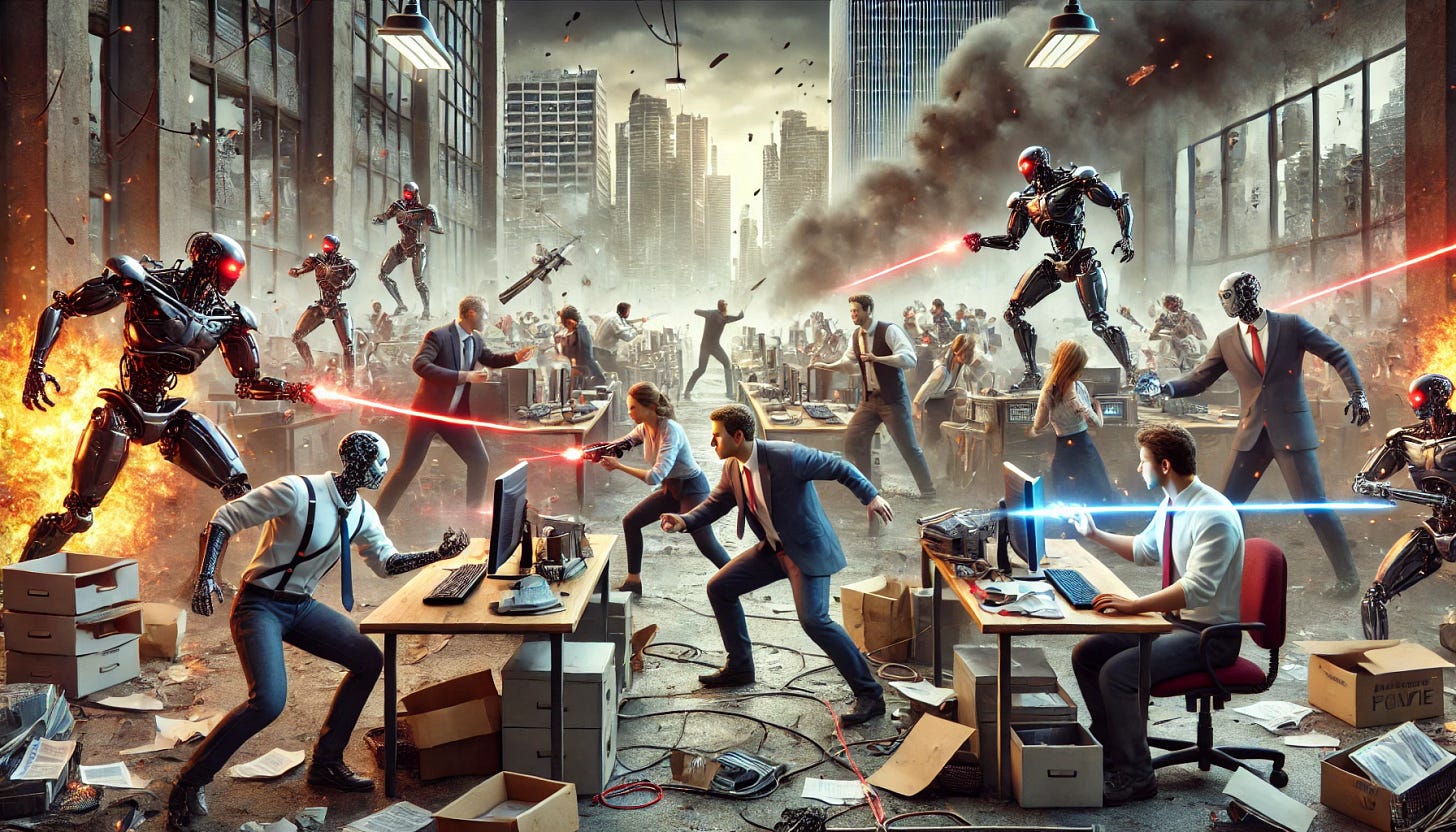

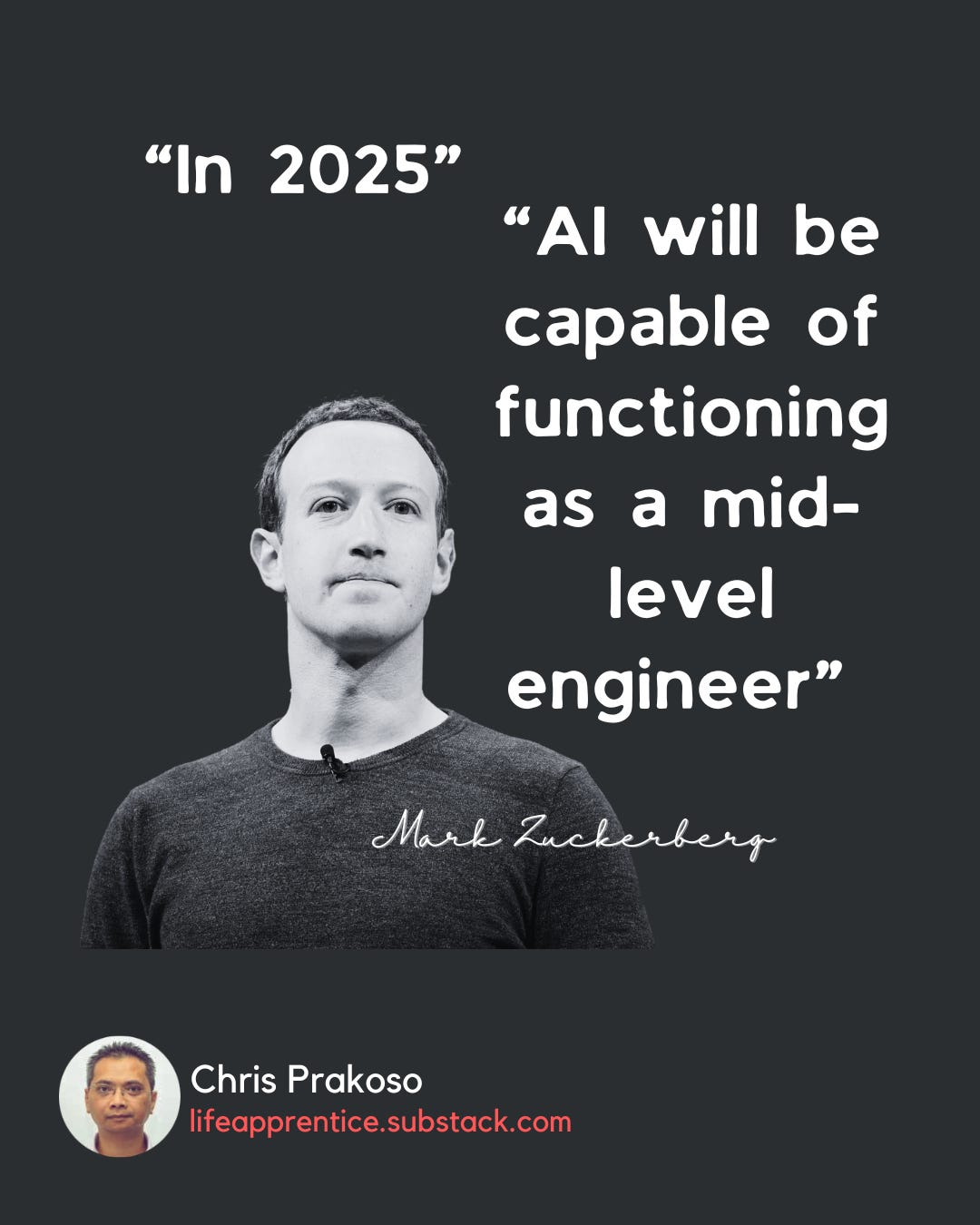
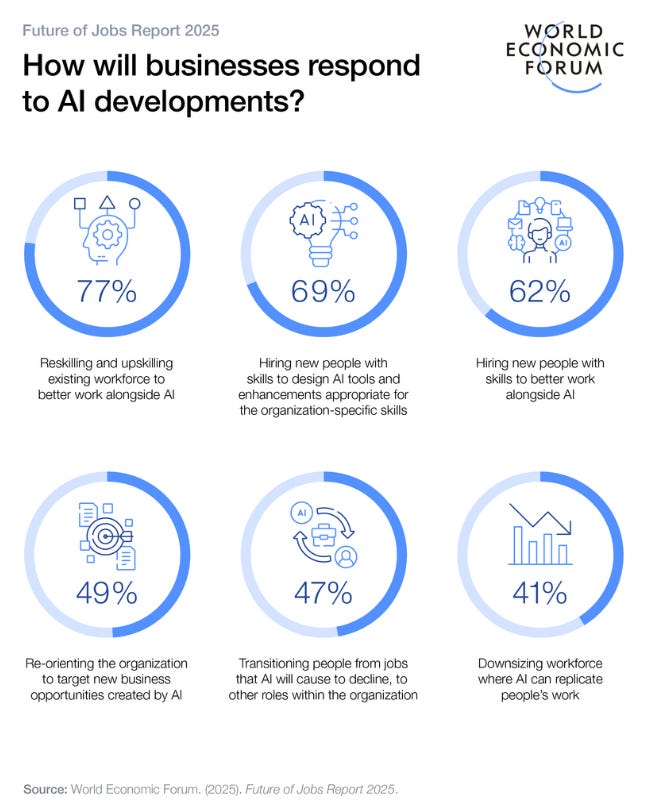
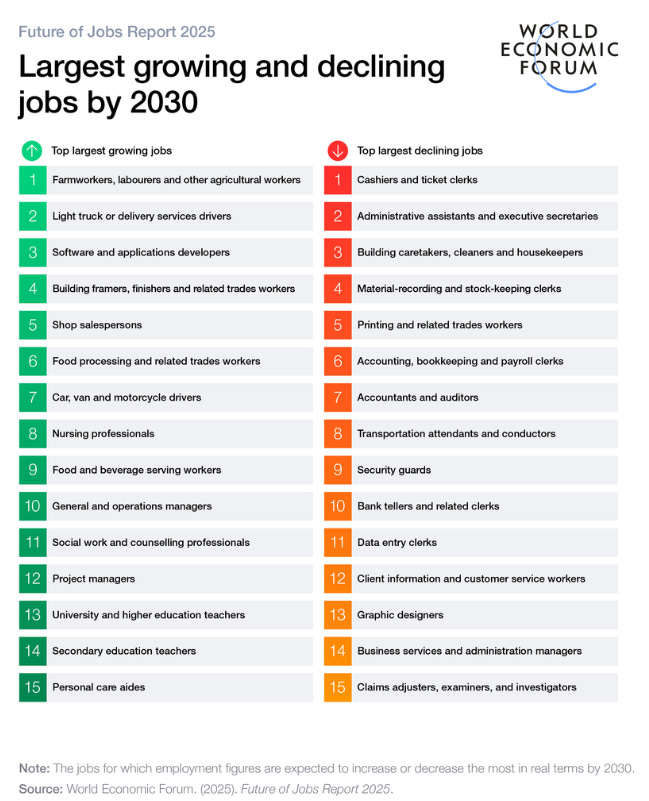
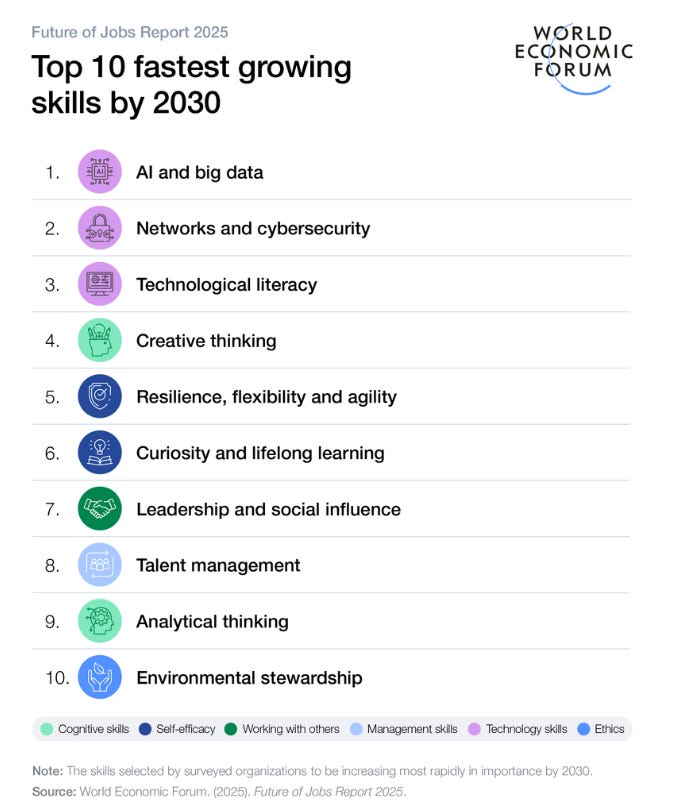
I like that this post also speaks to the need to focus on our human-ness: creativity, empathy, human connection. In a world where we’re learning to walk alongside machines I find it comforting to delve into what makes us most us!
Chris, this is eye opening and very timely. As I typed my response, a little drop down opened up asking if I needed help writing. Gulp. AI isn't coming, it's definitely here. Thank you for all the information!